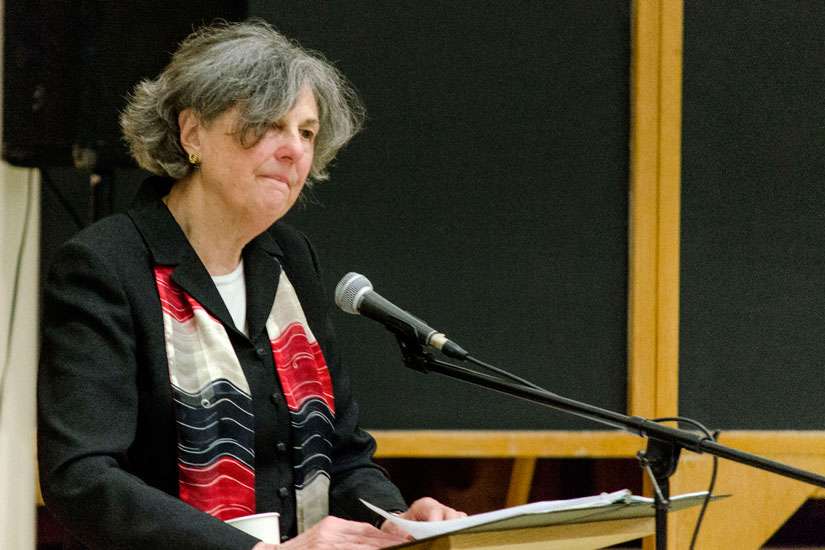“In the days and weeks ahead, think and pray about women, the diaconate and the future of ministry,” said Zagano, a Catholic theologian and American author, in a speech May 6 at Toronto’s University of St. Michael’s College. Her lecture kicked off a two-day conference titled “Women, the Diaconate and the Future of Ministry.”
“Pray about this triangulation of subjects because they frame both the Church’s problems and the solution to those problems.”
Ordaining women would address the chronic shortage of clergy to serve many of the rural and remote areas of the country, said Zagano.
“In its rural territories Canada suffers a dire clergy shortage,” she told the audience of about 80 people.
Women deacons would be given the authority necessary to properly run a parish, including signing off on official documents that lay people are unable to do.
Zagano, author of the 2000 book Holy Saturday which outlines her argument, said 95 per cent of Canada’s religious are over the age of 60 with about half of those beyond the age of 80. Those figures show the need to start the conversation “about restoring women to the ordained diaconate,” she said.
The call for the ordination of women to the diaconate is anything but new. Zagano noted that of the almost 280 who voted during the Synod on the Family held last October, none were female. Yet ordaining women into the diaconate made the Synod rounds through Gatineau Archbishop Paul-André Durocher, who on the Synod’s first day raised the question of ordaining women as deacons.
Since the Second Vatican Council, many have pondered the possibility.
“There was intense discussion about the diaconate at the Second Vatican Council and two fathers brought the question of women deacons to the floor,” said Zagano. “During the 1960s theological debate about women deacons continued, even as the cries for women priests sounded, mostly in developed countries.”
Between 1992 and 1997 the International Theological Commission studied the concept with another report, 78 pages in length, released in 2002 exploring the history of deacons, the distinction between the diaconate and the priesthood as well as the possibility of readmitting women as ordained deacons just like in the early early days of the Church.
Traditionally women deacons ministered to other females, performing sacraments such as baptism and anointing the sick while also serving as “the symbolic bridge between the celebrant and the people,” she said.
While many resist reverting to this historical tradition, 28-year-old Tashia Toupin is all for it, not only as a solution to the clergy shortage, but as a means of balancing the input in Church decision-making.
“Fifty per cent of our population is women and so if we don’t have women involved in the decision-making process, if you don’t give them a way for their voice to be heard, then it is not only unfair but it is intrinsically wrong because we are not hearing all of the voices we need to,” said the masters of divinity student. “That’s the kind of conversation that is so desperately waiting to happen and there hasn’t been adequate platforms for that to happen. We need to engage in that kind of dialogue.”
Brian Butcher, a professor of theology at Saint Paul University in Ottawa, also supports Zagano’s solution.
“I become more and more convinced of her case every time I hear her,” said Butcher, who gave his own lecture on day two of the conference. “Her scholarship is impeccable and she really approaches the issue from every angle. We need more like her who are are willing to look at the whole tradition and as the Gospel says bring out those treasures old and new.”
Zagano is realistic though. She knows the journey towards female deacons has yet to round the first bend.
“It’s not going to happen soon,” she said. “Patriarchy is embedded in our religion and in our scripture."


